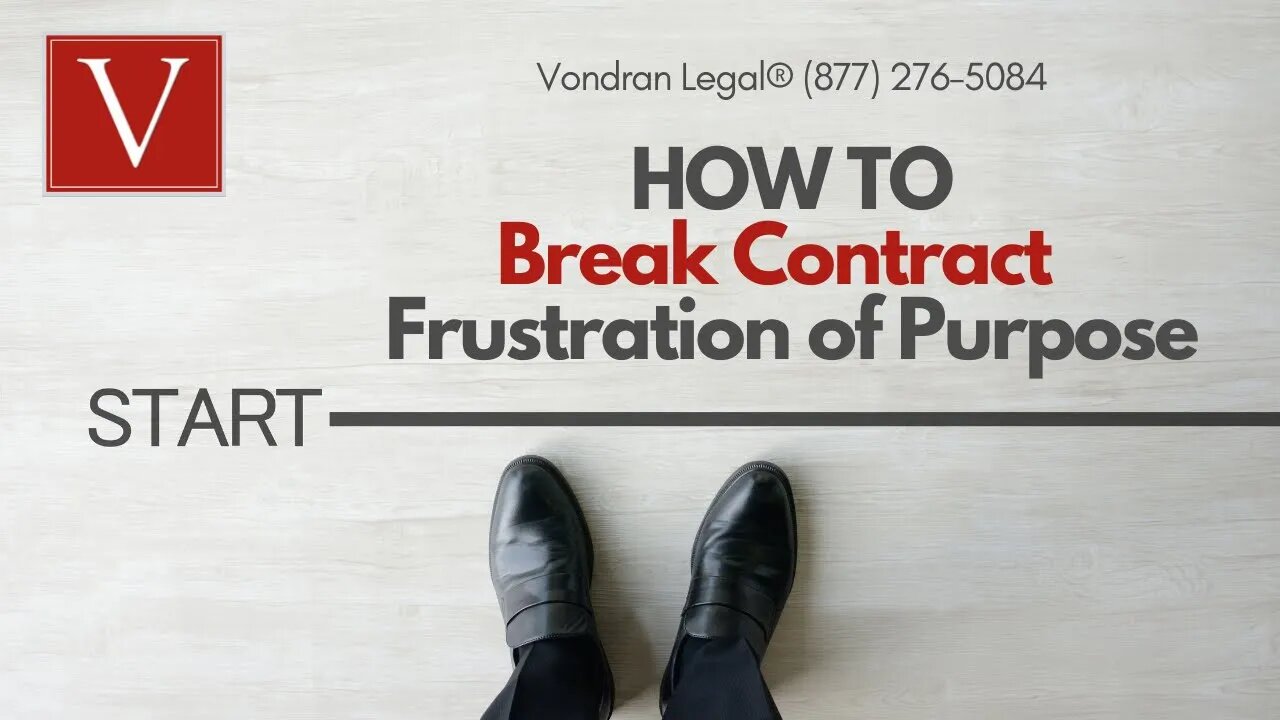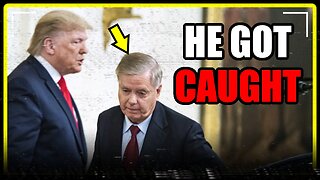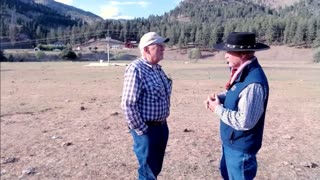Premium Only Content

Break lease with "Frustration of Purpose?"
http://www.CovidCounsel.com [over 690 videos and growing]. Subscribe for new videos: https://bit.ly/38vXDzk
The world is changing fast. Covid 19 virus has people and business owners panic-stricken and desperate to keep their employees and pay their bills. Many business owners want OUT OF THEIR LEASES. This is not always an easy proposition, but with the "Frustration of Purpose" contract law, it MAY be possible. This is a VERY NARROW doctrine, and the Courts will only allow this as a defense to a breach of contract in VERY LIMITED CIRCUMSTANCES.
This episode of Attorney Steve® "Contracts College" will help you understand this doctrine along with other very important legal concepts, including but not limited to:
1. Assumption of risk
2. Illegality
3. Leasehold estates (for you law students out there)
4. Commercial impracticability
5. Repudiation of a contract
If you like this VIDEO, please LIKE, COMMENT, and SUBSCRIBE. It helps incentivize me to do future videos. My practice is EXPLODING, so supporting my channel is very much appreciated as my time is so limited.
Take care, and god bless you all. Let's get through this together! #SilverLinings
Help me make this the BEST LEGAL CHANNEL ON YOUTUBE!!
Attorney Steve®
___________
Here is case law from the Lloyd vs. Murphy case:
Although commercial frustration was first recognized as an excuse for nonperformance of a contractual duty by the courts of England, its soundness has been questioned by those courts, and they have refused to apply the doctrine to leases on the ground that an estate is conveyed to the lessee, which carries with it all risks.
Many courts, therefore, in the United States have held that the tenant bears all risks as owner of the estate (Cusack v. Pratt, 78 Colo. 28 [239 P. 22, 44 A.L.R. 55]; Yellow Cab Co. v. Stafford-Smith Co., 320 Ill. 294 [150 N.E. 670, 43 A.L.R. 1173]), but the modern cases have recognized that the defense may be available in a proper case, even in a lease.
The tenant has been relieved in several cases.
"Even more clearly concerning leases than regarding ordinary contracts, the applicability of the doctrine of frustration depends on the total or nearly total destruction of the purpose for which, in the contemplation of both parties, the transaction was entered into."
The principles of frustration have been repeatedly applied to leases by the courts of this state Industrial Development & Land Co. v. Goldschmidt, 56 Cal.App. 507 [206 P. 134]; Burke v. San Francisco Breweries, Ltd., 21 Cal.App. 198 [131 P. 83]) and the question is whether the excuse for nonperformance is applicable under the facts of the present case.
Although the doctrine of frustration is akin to the doctrine of impossibility of performance (see Civ. Code, § 1511; 6 Cal.Jur. 435-450; 4 Cal.Jur. Ten-year Supp. 187-192; Taylor v. Caldwell, supra) since both have developed from the commercial necessity of excusing performance in cases of extreme hardship, frustration is not a form of impossibility even under the modern definition of that term, which includes not only cases of physical impossibility but also cases of extreme impracticability of performance (see Mineral Park Land Co. v. Howard, 172 Cal. 289, 293 [156 P. 458, L.R.A. 1916F 1]; Christin v. Superior Court, 9 Cal.2d 526, 533 [71 P.2d 205, 112 A.L.R. 1153];
The question in cases involving frustration is whether the equities of the case, considered in the light of sound public policy, require placing the risk of a disruption or complete destruction of the contract equilibrium on the defendant or plaintiff under the circumstances of a given case and the answer depends on whether an unanticipated circumstance, the risk of which should not be fairly thrown on the promisor, has made performance vitally different from what was reasonable to be expected.
The doctrine of frustration has been limited to cases of extreme hardship so that businessmen, who must make their arrangements in advance, can rely on certainty on their contracts (Anglo-Northern Trading Co. v. Emlyn Jones and Williams, 2 K.B. 78; 137 A.L.R. 1199, 1216-1221).
The courts have required a promisor seeking to excuse himself from the performance of his obligations to prove that the risk of the frustrating event was not reasonably foreseeable and that the value of counter-performance is totally or nearly totally destroyed (La Cumbre Golf & Country Club v. Santa Barbara Hotel Co., 205 Cal. 422, 425 [271 P. 476]; Herne Bay Steamboat Co. [25 Cal.2d 55] v. Hutton [1903].
Thus laws or other governmental acts that make performance unprofitable or more difficult or expensive do not excuse the duty to perform a contractual obligation. It is settled that if parties have contracted with reference to a state of war or have contemplated the risks arising from it, they may not invoke the doctrine of frustration to escape their obligations.
-
 6:48
6:48
Attorney Steve® Legal News
1 year agoPhotographer's $6.3 million verdict for photo infringement
60 -
 8:48
8:48
Faith Frontline
12 hours agoThe Moment That Shattered Dave Smith’s Atheist Beliefs
10K3 -
 2:39:17
2:39:17
Side Scrollers Podcast
17 hours agoKing of the Couch 2025: WHO WILL TAKE THE CROWN?!
60.4K2 -
 10:58
10:58
MattMorseTV
19 hours ago $4.99 earnedLindsey Graham just got EXPOSED.
22K64 -
 LIVE
LIVE
BEK TV
23 hours agoTrent Loos in the Morning 6/19/2025
300 watching -
 3:19
3:19
Rena Malik, M.D.
23 hours ago $1.63 earnedUrologist explains why you pee more often in the winter
16.3K8 -
 19:30
19:30
Ohio State Football and Recruiting at Buckeye Huddle
3 days agoOhio State Football: Which Playoff Format Would be the Best for the Buckeyes?
13.2K1 -
 36:25
36:25
Esports Awards
18 hours agoLaunders on CS2, Esports Evolution & Staying Real in the Game | Origins Podcast #12
24.5K2 -
 18:40
18:40
Lacey Mae ASMR
15 hours ago $0.59 earnedASMR Glue, Slime, and Shaving Cream on The Mic!
22K2 -
 8:15:16
8:15:16
IamNibz
9 hours ago $0.50 earnedA NEWBIE LEARNING CS2 With Dragoon_B And Faoplich!
16.7K